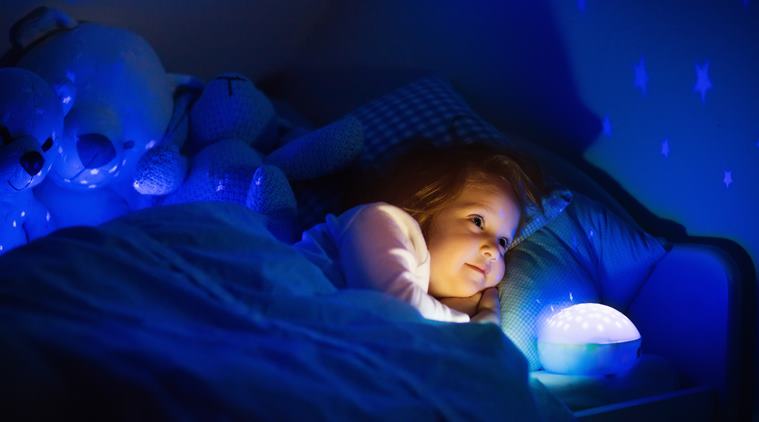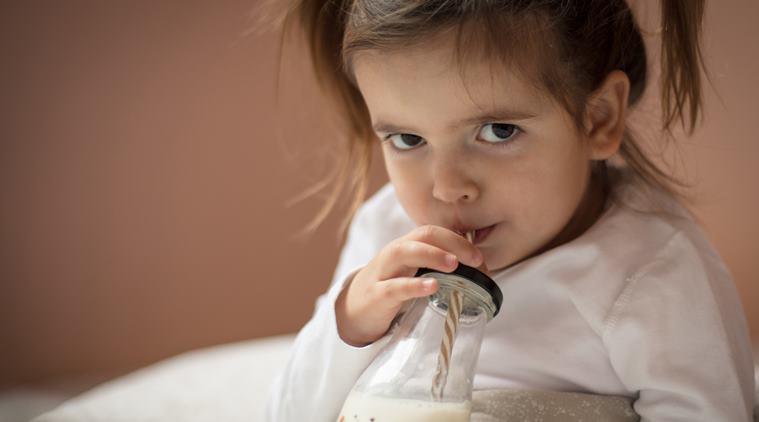Milk is one of the most important drinks which help toddlers take proper sleep. A toddler aged between 1-4 years should drink 150 ml of milk before bedtime whereas one with age 5-8 years should consume 250ml of milk.

By Dr Seema Khanna
If you are trying to get your child to sleep and are wondering if bedtime drinks will do the trick, they are to be mostly avoided as they trigger urine pressure and at times, due to burping, cause the child to vomit as well. Toddlers need plenty of sleep to stay mentally and physically healthy. Rather than drinks, fix a consistent bedtime routine and stick to it. Replace pre-bedtime games, sugary snacks and screen time with a soothing and relatively boring book. Toddlers need 11-14 hours of sleep a day, according to American Academy of Pediatrics. Most tots sleep best when tucked into bed by 7:30 or 8 pm latest. This is because kids who fall asleep before 9 pm wake up less often during the night and get more rest overall.
Some simple bedtime strategies can help you navigate (and negotiate) your toddler’s bedtime.
An active day equals a restful night
Give your child plenty of opportunity to exercise his mind and body during the day and you’ll have one happy — and pooped — camper come bedtime.
Keep bedtime routines routine
There’s no great mystery to the best bedtime routine. It’s all about the three Bs: bath, books, and bed. Go ahead and experiment with the right mix of bedtime activities for your child, but resist tinkering with the basic formula too much. The more parts you add — a song, an extra story, or a pillow fluff — the less shut-eye he gets. And keep it consistent. If bedtime is 7:30 pm, aim to hit the mark within 15 minutes either way every day.
Be wise about pre-bed snacks
If you offer up sugary snacks or drinks near bedtime, your toddler will be sugar-fuelled and revved up. It’s better to opt for a small glass of milk, instead, and/or a plain cracker and cheese (though remember to brush his teeth after the snack).
Avoid screen time before bed
The American Academy of Pediatrics recommends that all screens — TVs, computers, tablets, smartphones — be turned off at least 30 minutes before bedtime (and definitely keep them out of your child’s bedroom). Anything you do watch with your little one during the day should be age-appropriate and not scary, so that it doesn’t contribute to nightmares. Ditto, by the way, for any books you read before bedtime. Make sure they’re not scary either.
Milk is one of the most important drinks which help toddlers take proper sleep. A toddler aged between 1-4 years should drink 150 ml of milk before bedtime whereas one with age 5-8 years should consume 250ml of milk.
Benefits of milk:

Complete nutritional profile
Milk consists of carbohydrates and fats for energy, proteins for development and repair, as well as several vitamins and minerals that are essential in your child’s diet.
Bone and teeth development
The presence of calcium, phosphorus and vitamin D in milk supports the healthy development of bones and teeth in children. Calcium and phosphorus are crucial in forming enamel, the coating on the teeth that protect them from wear as well as acids present in food. Also, a milk protein known as casein can coat the enamel, preventing loss of the deposited calcium and phosphorus. All three nutrients are helpful in preventing diseases such as rickets, osteoporosis and osteomalacia, which occur due to brittle or weak bones.
Hydration
Milk is 87 per cent water and a smart method of ensuring your child stays hydrated for the entire day, especially after physical activities or exercise.
With these benefits and portions of milk, you can rely on this drink for your child’s healthy sleep and great development.
(The writer is a consultant nutritionist.)
Source: Read Full Article



